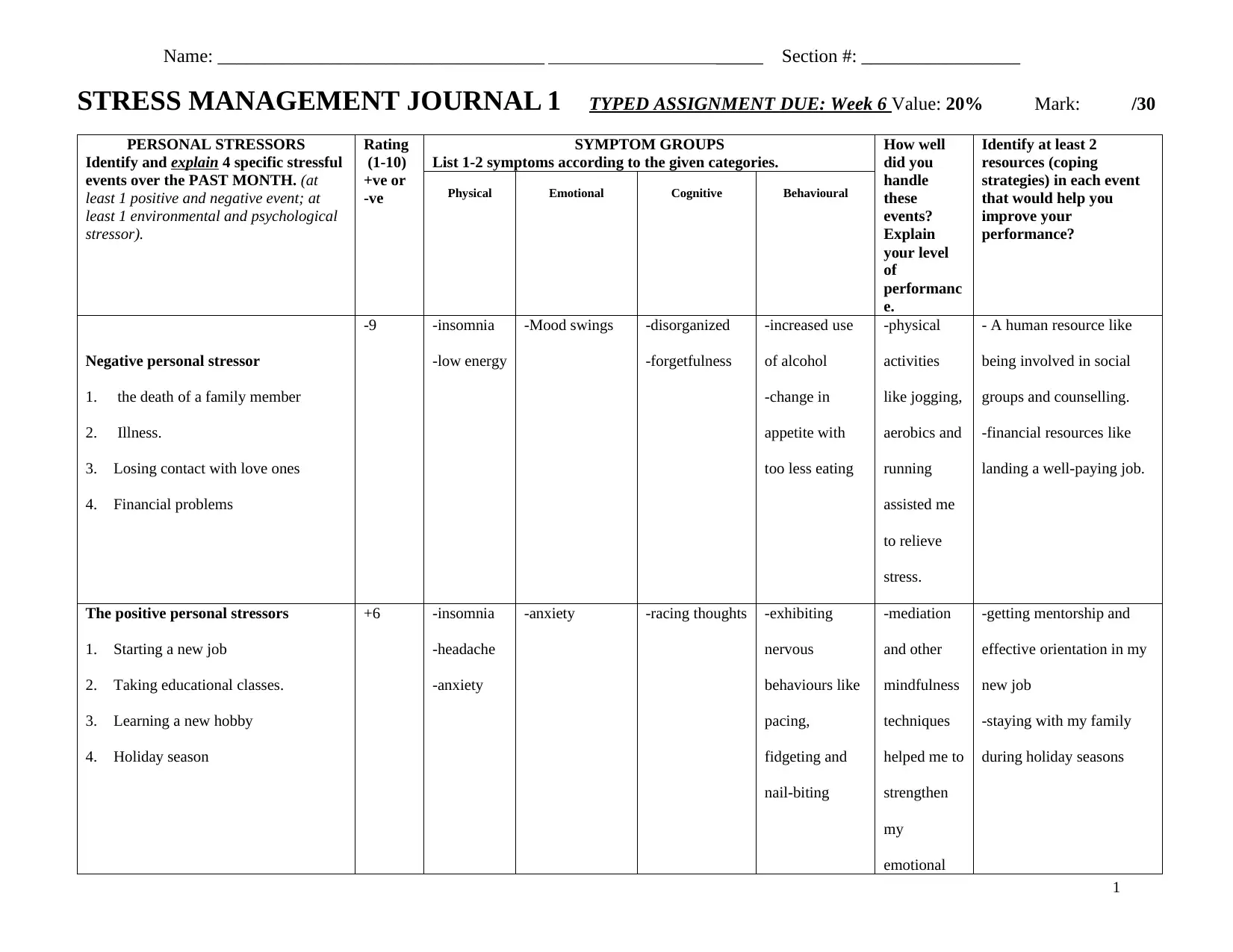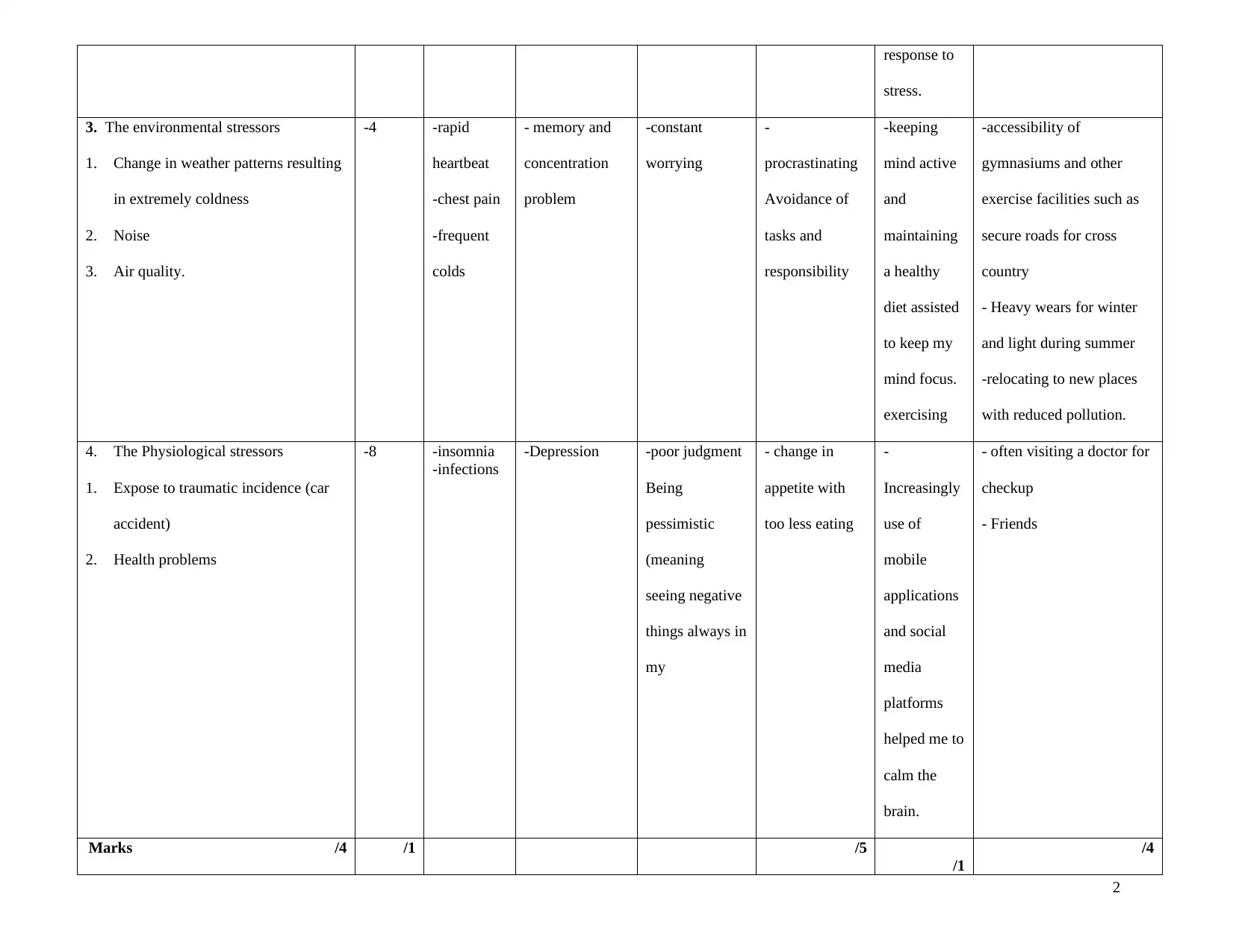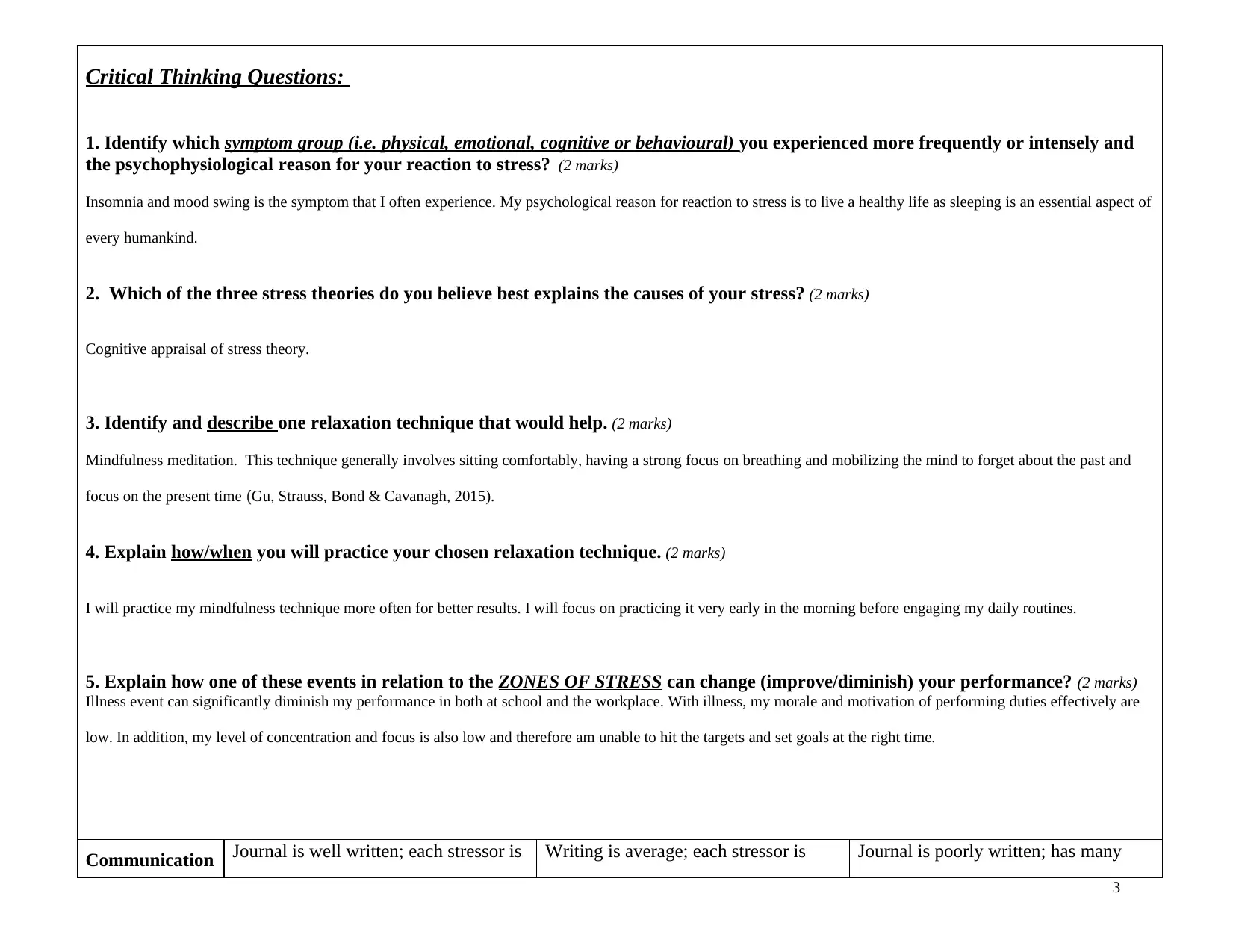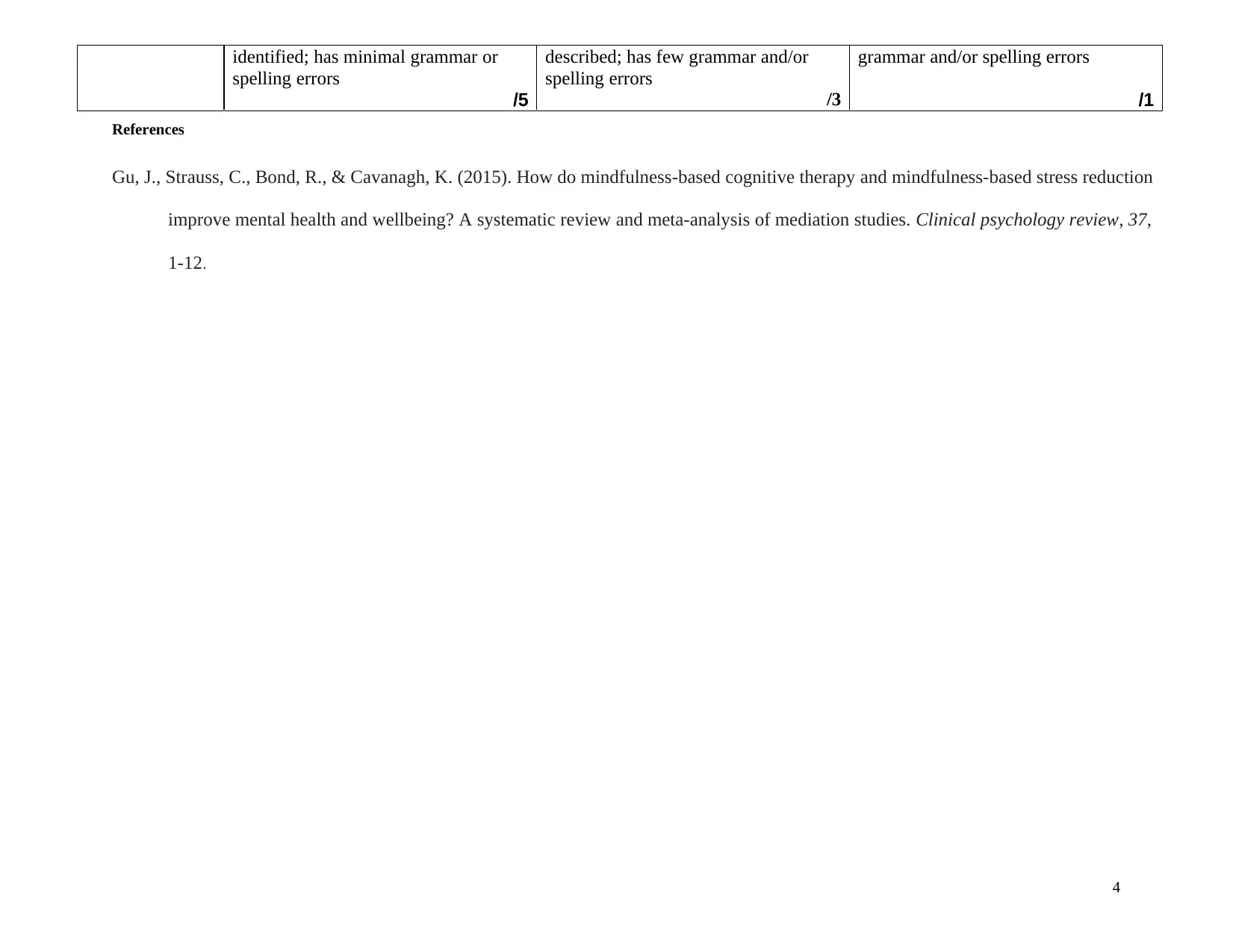Stress Management Journal 1: Personal Stressors and Coping Strategies
VerifiedAdded on 2022/08/17
|4
|1184
|12
Homework Assignment
AI Summary
This assignment is a stress management journal analyzing the student's personal stressors over the past month. It requires the identification and explanation of four specific stressful events, including positive, negative, environmental, and psychological stressors. The student rates each stressor, lists symptoms from physical, emotional, cognitive, and behavioral categories, and evaluates their handling of the events, identifying coping strategies. The assignment also includes critical thinking questions, such as identifying the most intense symptom group, explaining the psychophysiological reasons for their reactions, relating stress theories, describing a relaxation technique (mindfulness meditation), and discussing how events can change performance within the zones of stress. The journal demonstrates the student's ability to reflect on personal experiences and apply psychological concepts to manage stress effectively. The student's response is evaluated based on the identification of stressors, the description of symptoms, the analysis of coping strategies, and the answers to the critical thinking questions.
1 out of 4











![[object Object]](/_next/static/media/star-bottom.7253800d.svg)